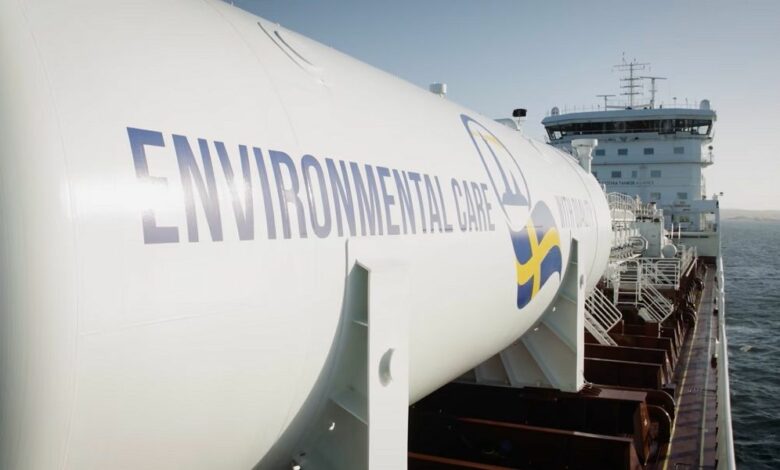Furetank and Wärtsilä tackle methane slip

Swedish shipowner Furetank has partnered with Finish technology group Wärtsilä to co-develop and test technologies showing the potential of halving the methane slip in LNG-fuelled ships.
Running ships on LNG and liquefied biogas (LBG) compared to conventional fuel oil delivers emissions reductions of CO2, NOx, SOx and harmful particles, but methane, which is a more potent greenhouse gas than CO2, remains one of the most critical technical challenges to overcome in gas-powered vessels.
To tackle this, the duo has trialed two solutions in Furetank’s LNG/LBG dual-fuel Vinga series tankers, one of which actively controls the engine while working in demanding conditions to optimise combustion and minimise unburned gas.
The other solution is the so-called low load optimisation package, which reduces the methane slip at low engine loads, for example during harbour operations. The package is said to balance the loading of each engine cylinder, optimising the overall total engine efficiency even at a low engine load.
The tests performed, both in the laboratory and at sea, show the methane slip was reduced by 45-50%.
“These are great results, far exceeding what we had expected or technically believed. The tests show a significant impact in absolute terms. We believe many shipping companies will be interested in these solutions. And this is not the end of the road, there is more to be done, said Göran Österdahl, sales director of marine power at Wärtsilä.
For Donsö-based Furetank, which operates nine owned vessels, this is yet another step in progressing the emission-reducing technology in its Vinga vessel series. The functionality will be implemented in ships currently being built at the China Merchants Jinling Shipyard in Yangzhou and retrofitted into all earlier units.
“We had many discussions with Wärtsilä during the past years on how to counter the methane slip. It is a tough nut to crack and the most important technical issue for us to solve. There is an ongoing chase for new engine solutions which will only intensify with the EU ETS system and stricter IMO regulations. We are happy to have this fast track to developers and manufacturers of advanced engine technology,” stated Clas Gustafsson, technical manager at Furetank.
“Our entire industry will need to establish many operator/product developer collaborations. Otherwise, progress will be too slow,” added Österdahl.
